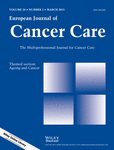Clinical outcomes following neoadjuvant cisplatin-based chemotherapy for bladder cancer in elderly compared with younger patients
Abstract
Bladder cancer is a disease of the elderly. Older patients might potentially be undertreated due to assumptions about benefit versus risk. Our objective was to determine outcomes in older patients receiving neoadjuvant chemotherapy for muscle-invasive bladder cancer (MIBC). We hypothesised that appropriately selected elderly patients (≥70 years) with MIBC could have similar clinical outcomes, and be safely treated, with standard neoadjuvant chemotherapy prior to definitive cystectomy or radiotherapy. We utilised a single institution case series analysis of patients with T2-4a N0 M0 transitional cell carcinoma of the bladder treated with cisplatin-based neoadjuvant chemotherapy between 2005 and 2011. Eighty-three patients were eligible. Median age was 68 (range 48–80), 33 patients (40%) were ≥70 years. Overall survival at 3 years was 65.8% (≥70) and 63.2% (<70) (P = 0.653), relapse-free survival at 3 years was 61.6% and 54.8% respectively (P = 0.471). The rates going forward to definitive local therapy (87.9% ≥ 70 and 84.0% < 70) and the pathological complete response rate (31.3% ≥ 70 and 40% < 70) were similar. Disease relapse rate was also similar (63.6% ≥ 70 vs. 60% < 70, P = 0.906). Elderly patients with good functional status and limited comorbidities diagnosed with MIBC receiving standard neoadjuvant chemotherapy followed by cystectomy or radiotherapy can have similar clinical outcomes as their younger counterparts. Prospective studies evaluating the optimum curative management in this elderly population are warranted.




